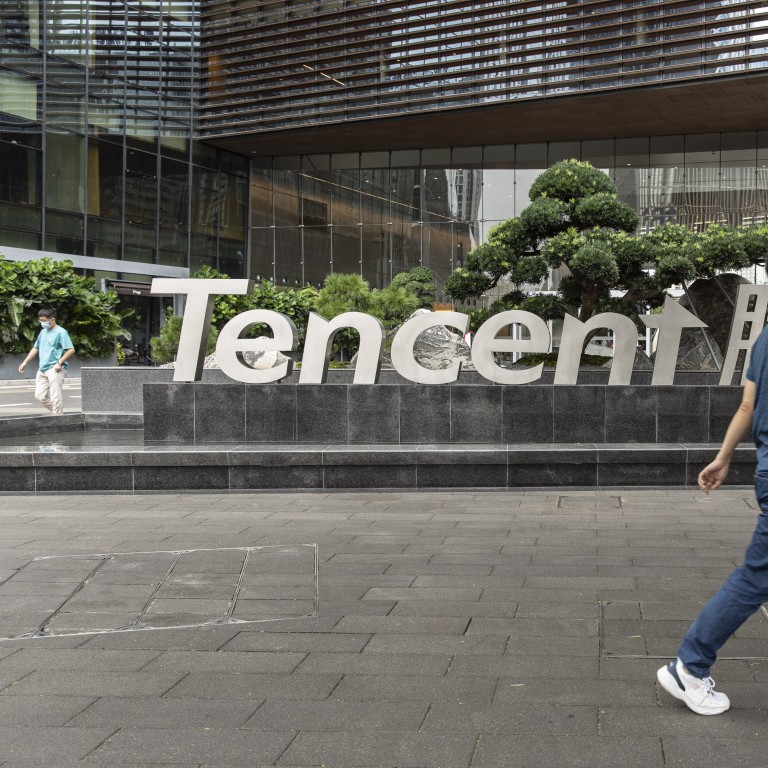
China suspends Tencent from updating existing apps or launching new apps: report
- China’s Ministry of Industry and Information Technology has told app stores and platforms to implement the order against Tencent apps
- It is not known how long the suspension will last and the Chinese ministry has not published any information about the ban
China has suspended Tencent Holdings from updating its existing apps or launching any new apps as part of a “temporary administrative guidance” against the tech giant, Chinese media outlets including Shanghai-based Chinastarmarket.cn, reported.
According to the report, China’s Ministry of Industry and Information Technology has told app stores and platforms to implement the order against Tencent apps from Wednesday in a harsh administrative punishment against the tech giant, which runs dozens of apps including the super app WeChat that has 1.2 billion users.
Tencent said in a statement that it is cooperating with the authorities on inspecting its apps, indirectly confirming the report.
New fines on tech giants show Beijing’s antitrust commitment
There are more than 70 apps published by Tencent that are active and there are more than 100 games published by Tencent Mobile Games, according to app tracking firm Qimai.
It is not known how long the suspension will last and the Chinese ministry has not published any information about the ban.
“We are continuously working to enhance user protection features within our apps, and also have regular cooperation with relevant government agencies to ensure regulatory compliance. Our apps remain functional and available for download,” Tencent said in its statement.
The regulatory move comes amid Beijing’s ongoing scrutiny of the country’s tech sector. Beijing has been turbocharging its legislative efforts to regulate data in the country, having enacted the Cybersecurity Law in 2017, followed by the Data Security Law this September, which requires firms to undergo a security assessment to gain approval before sending user data overseas.
And in November China enacted the Personal Information Protection Law, one of the world’s toughest regulations for personal data security with far-reaching implications for cross-border data transfers and how companies operate within the country.
Why does the Chinese government hate video games?
Tencent has run into various app update problems in recent months. In July it suspended new users from signing up for WeChat as it updated the app’s security framework to comply with regulatory changes. New sign-ups resumed in August.
In September, Tencent drew a line between WeChat and its China-only version Weixin, requiring users to choose one or the other as China’s strict new data laws came into effect. Analysts said the move by the social media giant was part of efforts to comply with the country’s increasingly stringent laws and regulations concerning data sovereignty and content censorship.
The ministry has been regularly naming and shaming apps that it deems guilty of violating regulations or infringing user rights. Tencent apps have often been named and shamed, among others from competitors such as Alibaba Group Holding and ByteDance.
In a November 3 list of 38 apps named and shamed by the ministry for excessively collecting user data, three apps were developed by Tencent, namely Tencent News, a Karaoke app and QQ Music.

